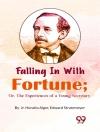In ‘A Man of Mark, ‘ Anthony Hope crafts a captivating narrative that intertwines elements of adventure, romance, and social commentary, emblematic of the late 19th-century literary style. The novel follows the journey of its protagonist, an aspiring artist, who navigates the complexities of ambition and moral quandaries within a society marked by class disparities. Hope’s prose is both incisive and witty, employing vivid imagery and sharp dialogue that illuminate the characters’ inner lives while also critiquing the societal norms of his time, reminiscent of the works of Dickens and Thackeray. Anthony Hope, an English novelist and playwright, is perhaps best known for his seminal work ‘The Prisoner of Zenda, ‘ which established him as a master of adventure fiction. Drawing from his own experiences in a rapidly changing Victorian society, Hope’s writing reflects an understanding of the struggles for identity and self-determination. His extensive travels and diverse cultural encounters inform the rich tapestry of characters in ‘A Man of Mark, ‘ showcasing his keen ability to explore the human condition across various social strata. This delightful novel is highly recommended for readers who appreciate tightly woven narratives that blend thrills with incisive social observations. Hope’s compelling storytelling and richly developed characters provide a profound reflection on the aspirations and moral dilemmas that define the human experience. ‘A Man of Mark’ invites readers not only to enjoy a riveting tale but also to ponder the deeper meanings of success and integrity in their own lives.
Over de auteur
Sir Anthony Hope Hawkins, better known by his pen name Anthony Hope, was an eminent English novelist and playwright of the late 19th and early 20th centuries. Born on February 9, 1863, in London, Hope studied at the illustrious Marlborough College and Balliol College, Oxford before practicing law. However, his passion for writing soon led him to a literary career. His most famous work, ‘The Prisoner of Zenda’ (1894), captured the imaginations of readers with its romantic adventure in the fictional realm of Ruritania, a theme that became a hallmark of the Ruritanian romance genre. Following the success of this novel, he penned ‘A Man of Mark’ (1890), which also showcases his talent for crafting engaging narratives that blend political intrigue with a light-hearted tone. Throughout his career, Hope authored over 50 works of fiction, ranging from novels to short stories, highlighting his versatile writing style. His works frequently addressed themes of social dislocation and moral dilemmas, often set against a backdrop of vividly described imaginary countries or situation of social and political upheaval. Despite his productivity, none of his subsequent books achieved the towering success of ‘The Prisoner of Zenda.’ Hope was knighted in 1918 for his contribution to the war effort through his role as chairman of the War Savings Committee. He died on July 8, 1933, leaving behind a rich legacy in the canon of English literature.












